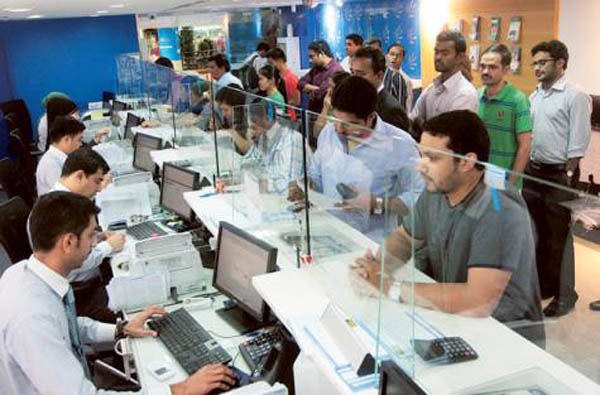Amounts to India and Philippines will hit $97b and total transfers will increase
Indian and Filipino expatriates in the UAE and other countries around the world are topping the charts in remittances for the developing world, a new report suggested.
According to the World Bank data released this month, India and the Philippines are among the top recipients of remittances, or money being sent by migrant workers to their families and friends, for 2013. The two countries are likely to represent nearly a quarter of the remittance volumes to the developing world this year.
India is expected to receive from various countries remittances worth $71 billion (Dh260.7 billion), the highest among developing country recipients, while funds sent to the Philippines are forecast to top $26 billion, the third-highest.
Other major beneficiaries are China ($60 billion), Mexico ($22 billion), Nigeria ($21 billion) and Egypt ($20 billion). Pakistan, Bangladesh, Vietnam and Ukraine are also considered “large recipients”.
The World Bank estimated that money transfers to developing countries are likely to increase by 6.3 per cent this year to $414 billion and are expected to swell further to surpass the half-trillion mark by 2016.
Migrant workers from around the world, including expatriates in the UAE, have been sending money regularly to their home countries. A Western Union study showed that 96 per cent of the people who remit money do it to extend financial support to their families.
“Expatriates send money to their families back home at least once a month. During festivals, a spike is experienced as the remitters send [higher] amounts and sometimes even more than once in a month,” noted Promoth Manghat, vice president for global operations at UAE Exchange.
For UAE Exchange, the top three remittance senders in the UAE are Indians, Bangladeshis and Pakistanis, followed by Filipinos, Egyptians and Sri Lankans.
Kaushik Basu, senior vice president and chief economist of the World Bank, said the latest estimates show the “power of remittances. He noted that the $71 billion remittances to India is “just short of three times” the foreign direct investments that the country received last year.
“Remittances act as a major counter-balance when capital flows weaken as happened in the wake of the US Fed announcing its intention to reign in its liquidity injection programme. Also, when a nation’s currency weakens, inward remittances rise and, as such, they act as an automatic stabiliser,” Basu added.


